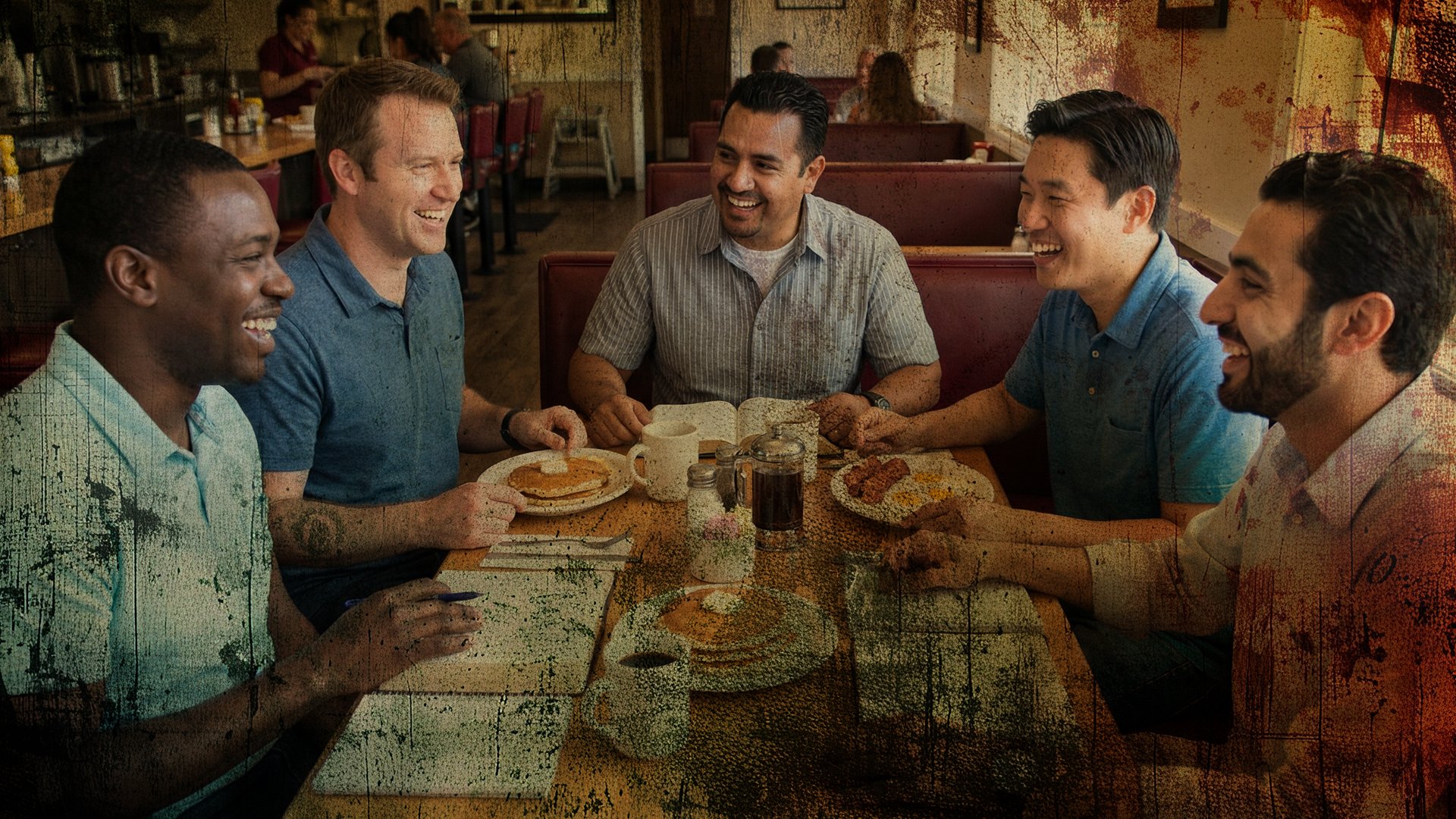The heart of the Men’s Table is a small group spending time in discussion around a table. The table leader wants to see two things happen at their table each week. They want to see every man giving input, and they want to see every man receiving wisdom. As a facilitator, the table leader’s questions will significantly impact whether or not these goals are met. Questions are simply a means to spur discussion. Put out a question as a table leader and it naturally solicits an answer from the group. The questions themselves, though, are important in form and function.
Questions help us grasp spiritual principles, and connect verses and passages in the Bible to our lives and work. Don’t be afraid to let a question “hang” for a little bit if an answer is not immediately forthcoming. As a leader, you can also interject a thought or two as well from time to time—but avoid dominating the conversation. Ask the wrong questions, and discussion gets shut down. Ask the right questions, and the men will open up and learn from one another.
The wrong questions. Stay away from questions that are limiting and leading. Limiting questions have just one specific answer, or could be answered with a yes or no. For instance, “What are the three truths contained in this passage?” or “Do you agree with what is being taught in this instance?” Limiting questions become a mind-reading contest, where the men try to guess what the leader knows or is thinking. Leading questions contain the desired answer in the question itself. For example, “We should all agree with this, shouldn’t we?” These questions don’t stimulate any active discussion.
Sometimes in Scripture, there is just one right answer. For instance, “According to the Ten Commandments, does God want us to avoid lying?” The answer is yes, but the question doesn’t lead anywhere. It’s important to ask questions versus making statements. The goal is not to communicate theological points, but to get the men talking about the topic. Good questions will demand conversation. Open-ended questions might draw on the experiences and mindsets of the men at the table—you’ll get a different response from each one.
The right questions. You’ll want to ask open-ended questions in order to stimulate discussion. These are questions that have multiple answers, or solicit opinions from the group. The answers to open-ended questions might lead to talking about people, places, times, reasons, results, methods or processes.
Take that question about lying and the Ten Commandments. Is there a more open-ended way to ask that would provoke discussion? Consider these alternatives:
Why do you think God gave this commandment to men?
Who was this command directed toward? How do we know?
What was the outcome of God giving this commandment?
What are some examples of how we might live out this commandment at work?
How do we see this commandment lived-out in our culture today?
Why is this commandment important for leaders?
In each of these examples, notice how the answer might be different for each man. Notice, too, that we’ve seeded words like men, work and leadership into these examples. You don’t have to do a leadership lecture for that to be a topic—simply infusing the questions with words common to your fellowship will help keep the discussion on target.
Consider keywords like who, where, when, why and how. There are many “general” questions that you can keep at the ready to get talk flowing on a Scripture or topic:
What did you learn?
What did you observe?
What impressed you?
And? Remember, too, that one answer from one man isn’t the end of a particular question or topic. You can continue to stimulate talk with questions like:
Would someone else like to comment on this?
What does someone else see in this verse?
Does anyone want to add something?
What did others of you find?
What did someone else discover?
Summarize and apply. Spend the last few minutes of your time together summarizing the discussion. A summary is recalling some of the major points of discussion, rather than giving your own insights about the topic. Don’t preach. You might end with an application question:
What are some ways we might live-out this lesson in the coming week?
What did you learn from the Scriptures today that you found interesting?
How will this make a difference in your work week?
Where can you see this teaching being of benefit to your leadership?
Prepare and pray. Always go into your table group having reviewed the questions you plan to ask, giving some thought to which ones may result in good discussion. Preparing a discussion is not the same as preparing a lesson. In preparation, you want to ensure you have enough questions ready that are interesting and on topic. You also want to have a few thoughts on the biblical application of what you will be talking about.
Finally, prepare for the table discussion through prayer. Pray for the men who will attend. Pray for your own involvement and influence. Pray that the Holy Spirit will guide men to God-centered answers and application. Pray for the men to open up and be ready to engage and learn. And pray that the table time is a welcoming environment for every man. Don’t forget to pray, too, for the salvation of each man present, and for openings to share the Gospel when appropriate, either with the group or one-on-one.

















A creed is a formal statement of essential beliefs. The word “creed” comes from the Latin “credo” meaning, “I believe.” You can adopt The Brothers’ Creed as a statement of belief for your Men’s Table.